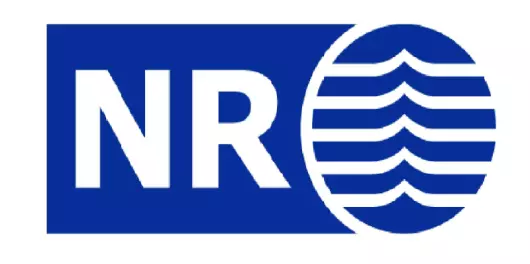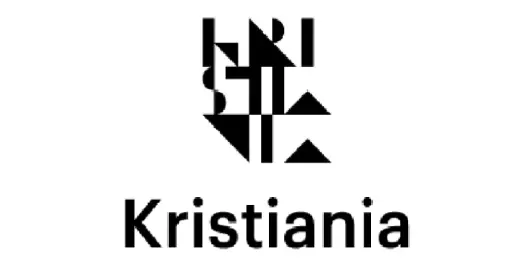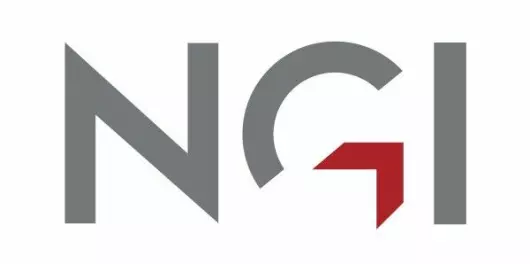Ledig stilling på Universitetet i Oslo
Blindern og Urbygningen (Foto: Wikimedia og Colourbox)
Postdoctoral fellowship in Developmental Cognitive Neuroscience
Deadline: 15.01.2023
Universitetet i Oslo
The University of Oslo is Norway’s oldest and highest ranked educational and research institution, with 28 000 students and 7000 employees. With its broad range of academic disciplines and internationally recognised research communities, UiO is an important contributor to society.
The Department of Psychology is one of seven units of the Faculty of Social Sciences, and has 75 permanent and 70 temporary members of scientific staff. Degrees are offered at bachelor and master level, plus a clinical training programme, and the PhD programme has 140 students.
Faculty of Social Sciences, Department of Psychology, Section for Health, Developmental and Personality Psychology
Job description
A 3–4-year Postdoctoral fellowship in developmental cognitive neuroscience is available at the Section for Health, Developmental and Personality Psychology (HUP). The position will be part of the Norwegian Centre for Mental Disorders Research (NORMENT) and the PROMENTA Research Center.
NORMENT is a Norwegian Centre of Excellence aiming to disentangle the genetic, neurobiological, psychological and environmental factors contributing to mental illness. Through our infrastructure for clinical evaluations, cognitive assessment, neuroimaging and biobanking we are assembling a large imaging genetics database comprising data from healthy controls and patients suffering from mental disorders.
PROMENTA is an interdisciplinary centre that carries out research on mental health in a holistic perspective - from genetics and biology to local communities and policy. We are particularly concerned with understanding developmental processes and social gradients in mental health, drug use and wellbeing.
The postdoctoral fellowship is funded by a grant from the Research Council of Norway for the project «Learning from mistakes: A Longitudinal Neuroimaging-Cohort-Registry Study”, led by Professor Christian K. Tamnes. The project is part of a larger project called BRAINMINT.
The appointment is a fulltime position for a period of three years. A fourth year can be considered with the addition of 25% teaching duties, depending on the competence of the applicant and the needs of the department. Postdoctoral fellows who are appointed for a period of four years are expected to acquire basic pedagogical competency during their fellowship period within the duty component of 25%.
About the project
The postdoctoral fellow will analyse neuroimaging data from large datasets, perform statistical analyses, and write articles on neurocognitive development in relation to adolescent mental health and/or education outcomes. The fellow is expected to further develop her/his skills in advanced neuroimaging and statistical methods and finalize three articles within the project period. The fellow is also expected to support projects of other members in the research group.
On an overarching level, the project aims to improve our understanding of the role of neurocognitive development in adolescent mental health and educational outcomes. The primary objectives of the project are to 1) Map the development of higher-order cognitive functions across adolescence, 2) Probe how this development is related to changes in brain structure and function, 3) Test how early life influences and traits are associated with individual differences in brain structure and function, and 4) Examine the relevance of these individual differences for mental health and school performance.
We are currently collecting behavioural, electroencephalography (EEG) and multimodal magnetic resonance imaging (MRI) data from both a large population-based sample and a heterogeneous clinical sample of adolescents. We are also working with several large open developmental datasets that include structural and functional MRI, diffusion MRI, and EEG. The specific focus of the postdoctoral fellowship project will be planned together with the project leader.
Qualification requirements
- A PhD degree or similar in psychology, cognitive neuroscience, medicine, or a related field.
- Doctoral dissertation must be submitted for evaluation by the closing date. Appointment is dependent on the public defense of the doctoral thesis being approved.
- Excellent English skills, orally and in writing.
- Strong skills in neuroimaging (FreeSurfer, FSL or similar) and quantitative data analysis (R, Mplus or similar)
- Ambition and potential for high-quality research within the project, as evidenced by the publication list and the required letter of application, explaining the motivation for applying and how own qualifications are suitable for the announced position.
- Personal suitability, motivation, and willingness to collaborate with academics from diverse backgrounds
Preferable additional qualifications
- Research experience in the fields of cognitive neuroscience, developmental psychology, psychopathology, or educational neuroscience
- Experience with working with and analysing data from large neuroimaging datasets (e.g., ABCD Study)
- Research experience or training in analysing longitudinal data
- Experience with open science practices
- Teaching experience
In assessing applications, particular emphasis will be placed upon the quality of the candidate’s academic qualifications. Interviews with selected candidates will be arranged where the applicant’s personal suitability, motivation and cooperative skills will be emphasized.
We offer
- Salary grade NOK – 573 900 - 661 400 per year, depending on qualifications in a position as Postdoctoral Research Fellow (position code 1352)
- A professionally stimulating working environment.
- Opportunities for extensive collaboration with our national and international collaborators.
- Attractive pension and social welfare benefits.
- Oslo’s family-friendly environment with its rich opportunities for culture and outdoor activities.
How to apply
The application must include
- Cover letter (statement of motivation, summarizing scientific work and research interests and how own qualifications match the announced position), max. 3 pages
- CV (summarizing education, positions, pedagogical experience, administrative experience, and other qualifying activity)
- A complete list of publications and academic works (including preprints and scientific talks and posters). Publications should not be submitted along with the initial application
- Copies of educational certificates (academic transcripts only) including a confirmation of submitted thesis
- Names and contact details of at least two references (name, relation to candidate, e-mail, and phone number)
The application with attachments must be delivered in our electronic recruiting system. Foreign applicants are advised to attach an explanation of their University's grading system. Please note that all documents should be in English (or a Scandinavian language).
In assessing the applications, special emphasis will be placed on the documented, academic qualifications, the project description (whenever this is required in the call for applicants), and the quality of the project as well as the candidates motivation and personal suitability.
Interviews with the best qualified candidates will be arranged.
It is expected that the successful candidate will be able to complete the project in the course of the period of employment.
Formal regulations
Please see the guidelines and regulations for appointments to Postdoctoral fellowships at the University of Oslo.
No one can be appointed for more than one Postdoctoral Fellow period at the University of Oslo.
This is a project funded by the Research Council of Norway and applicants with a previous postdoctoral fellowship funded by the research council cannot be appointed for this position.
According to the Norwegian Freedom of Information Act (Offentleglova) information about the applicant may be included in the public applicant list, also in cases where the applicant has requested non-disclosure.
Inclusion and diversity are a strength. The University of Oslo has a personnel policy objective of achieving a balanced gender composition. Furthermore, we want employees with diverse professional expertise, life experience and perspectives.
If there are qualified applicants with disabilities, employment gaps or immigrant background, we will invite at least one applicant from each of these categories to an interview.
Contact information
Please contact the project leader for more information about the project.
Apply for position














